Drive to Win: In Conversation with Oracle Red Bull Racing Team Principal Christian Horner & Rokt CEO Bruce Buchanan
Christian Horner, Team Principal and CEO of Oracle Red Bull Racing, has become a household name for Formula 1 fans, thanks to decades of experience and a remarkable track record, including leading his team to the 2023 Constructors’ Championship and most recently, Max Verstappen’s fourth consecutive World Drivers’ Championship. During a recent visit to the Rokt New York office, Horner sat down with Bruce Buchanan, Rokt’s CEO, to discuss his legendary career, his team’s extraordinary achievements, and the shared values that connect Oracle Red Bull Racing and Rokt. Here’s a closer look at the man behind the victories.
From karting to the Formula 1 podium
Like many kids, Christian Horner’s love for motorsport started with a spark of imagination and inspiration. Hours of watching shows like The Dukes of Hazzard and idolizing daredevils like Evel Knievel made speed and adventure an irresistible draw. For most, these childhood dreams remain just that—but for Horner, they became a lifelong pursuit. By the age of 12, he turned his daydreams into reality, climbing into a go-kart and competing on tracks across the UK.
Things picked up speed when he earned a Renault Scholarship—a program designed to nurture young driving talent. It was his first big step from karting into professional car racing, reinforcing his belief that he was destined to follow in the footsteps of his hero, Nigel Mansell, the legendary British Formula 1 champion known for his fearless, gritty driving style.
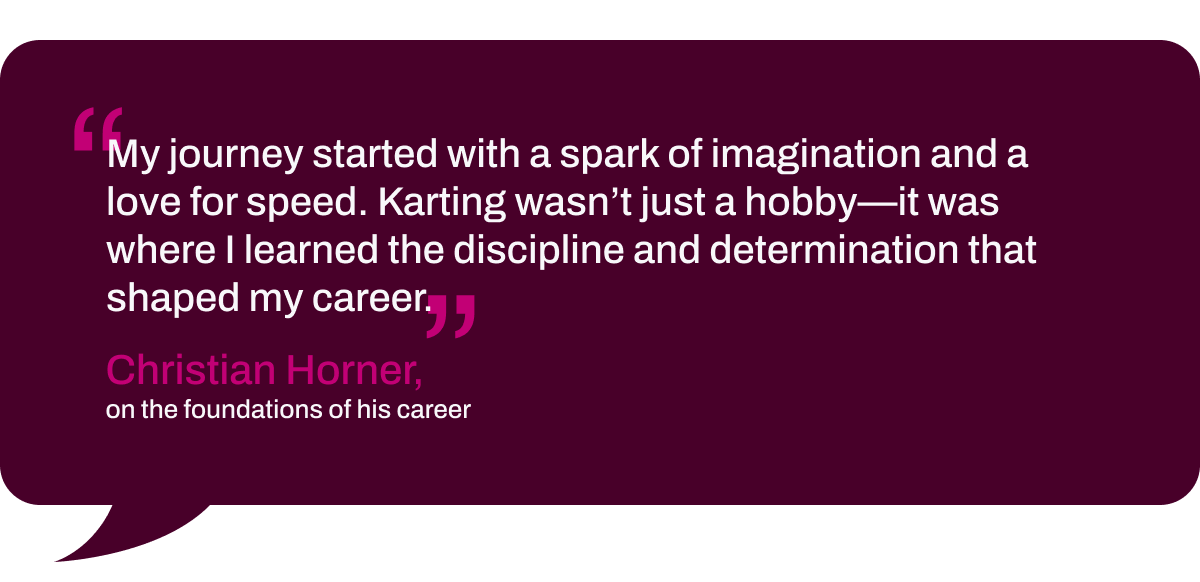
Horner’s knack for thinking outside the box became clear early on when he found sponsorships in unexpected places. One standout sponsor, a cake company, asked him to brand his car with their latest products: cakes themed around Dennis the Menace, a beloved British comic character, and the Spice Girls, a pop group just starting their rise to fame. Initially skeptical about the Spice Girls cakes, the company was surprised when they became a massive hit—so much so that Horner likes to joke that, at one point, his future wife, Geri Halliwell (aka Ginger Spice), was indirectly funding his racing career. This connection would come full circle when the two later married.
During his career, when he was faced with motorsport’s financial demands—and the lack of big-name sponsors—Horner made a bold pivot. At just 25, he stepped away from driving and started managing his own racing team. It was hands-on and challenging—Horner took charge of everything, from managing budgets to booking hotels and filing tax returns, all while leading a small crew and keeping his car race-ready. “If I crashed the car, I couldn’t pay my employees,” Horner often recalls, highlighting the immense responsibility of balancing his roles as a driver and team manager.
But stepping out of the driver’s seat turned out to be the best decision he ever made. By 2004, his Arden International team had clinched three Formula 2 championships, catching the eye of two of motorsport’s most prominent names: Bernie Ecclestone, the mastermind behind Formula 1’s global success, and Dietrich Mateschitz, the founder of Red Bull. Mateschitz was looking for someone to lead Red Bull’s newly acquired Formula 1 team, and Horner’s track record made him the perfect fit.
At just 31 years old, Horner became the youngest-ever Team Principal in Formula 1, kicking off a career that would not only transform Oracle Red Bull Racing but also leave a mark on the sport itself.
Leadership in motion: Building a high-performance team
Transforming Oracle Red Bull Racing from a fledgling team to a global powerhouse has been no small feat. Under Horner’s leadership, the team has grown from 350 employees to over 2,000, navigating relentless competition and the complexities of building a winning team.

A shared vision is at the core of Oracle Red Bull Racing’s success: the car’s performance on race day is the ultimate metric. With every department aligned toward that goal, Horner has built a team where the smallest marginal gains can make the difference between winning and losing.
For Horner, competition is both an opportunity and a challenge. Rather than letting these pressures hinder, Horner and his team use them as fuel to innovate and improve. This mindset ensures that the team remains competitive and dominant, constantly refining their approach to maintain their position at the top.
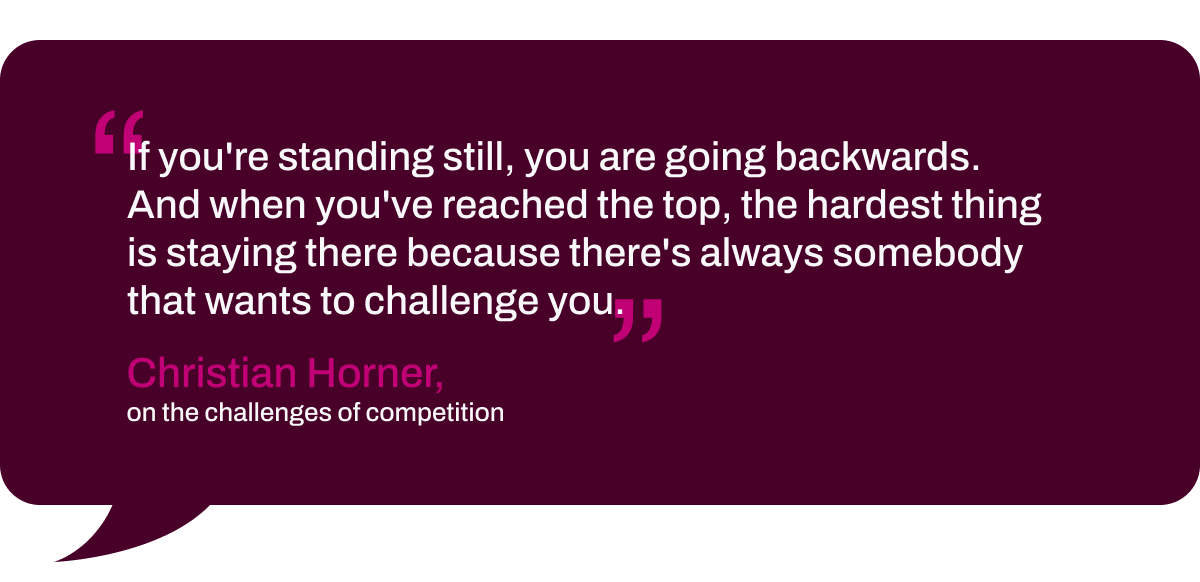
At the heart of his leadership style is resilience and focusing on what can be controlled. “At moments of challenge, you have to stick together, focus on the basics, and believe in yourself that you’ll find solutions,” Horner says. This ability to adapt, collaborate, and stay focused mirrors Rokt’s leadership approach, where empowering teams to innovate and navigate challenges drives success. Investing in talent and fostering a culture of accountability has been critical for both Horner and Buchanan in building high-performing teams. “If the organization’s capability doesn’t stay ahead of its growth, we won’t continue to succeed. Investing in people, talent, and leadership is key to staying on course,” Buchanan emphasizes.
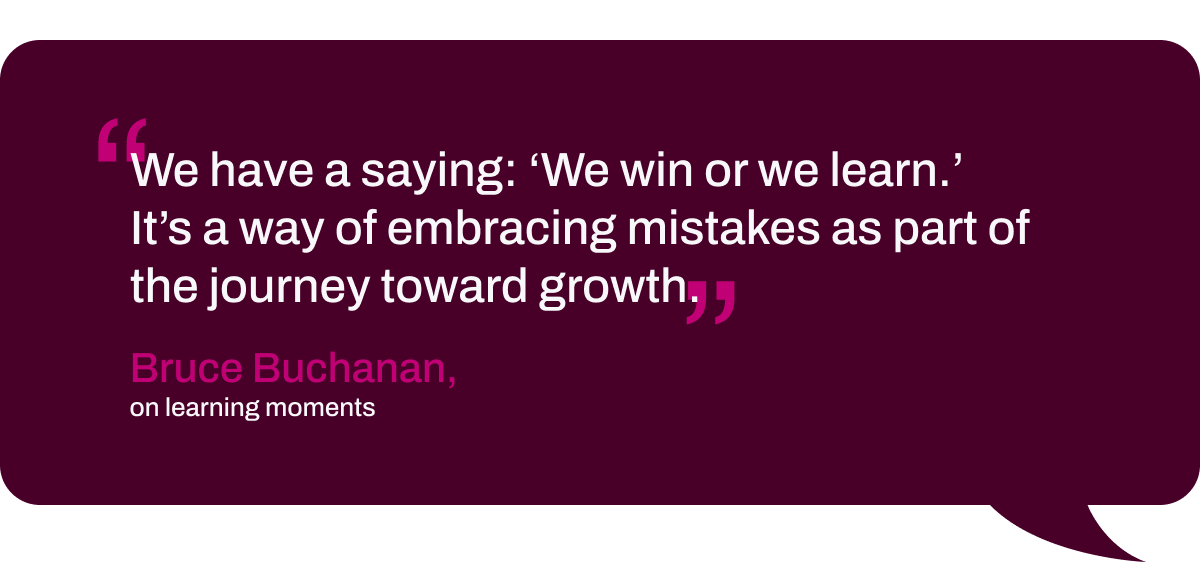
By prioritizing honesty, teamwork, and adaptability, Horner has built a legacy of success at Oracle Red Bull Racing that continues to drive the team forward.
F1’s growing impact across the globe
Formula 1’s popularity has soared in recent years, particularly in the United States, where average race viewership has climbed from 671,000 in 2018 to over 1.1 million in 2023. While Netflix’s Drive to Survive deserves credit for introducing the sport’s drama and strategy to new audiences, the growth goes much deeper. From social media engagement to initiatives aimed at younger fans, F1 has made a concerted effort to broaden its appeal.
At its core, Formula 1 is a business built on precision, technology, and relentless improvement. Leading Oracle Red Bull Racing, Christian Horner has embraced these opportunities, ensuring the team focuses on cultivating a strong work environment and investing in top-tier talent.

With strict spending caps in place, Formula 1 teams are challenged to be strategic with their resources, making every investment count. This aligns with Horner’s leadership style, where success comes from uniting every department toward a shared goal: delivering on race day. Beyond technical performance, Horner highlights the importance of partnerships in driving growth—an approach that deeply resonates with Rokt.
As Rokt CEO Bruce Buchanan noted in a Bloomberg Television interview, Formula 1’s global reach has been instrumental in building connections for the company. The sport’s blend of innovation, visibility, and competitive spirit mirrors Rokt’s own values, making the partnership a natural fit.
Accelerating innovation together
Oracle Red Bull Racing and Rokt share more than just a partnership—they share a mindset. As Bruce Buchanan, Rokt’s Founder and CEO, puts it, “Rokt and Oracle Red Bull Racing are both innovative, disruptive, mission-driven companies focused on our commitment to diversity and being a force for good in our communities.” It’s a collaboration rooted in shared values like precision, performance, and the drive to make a meaningful impact.
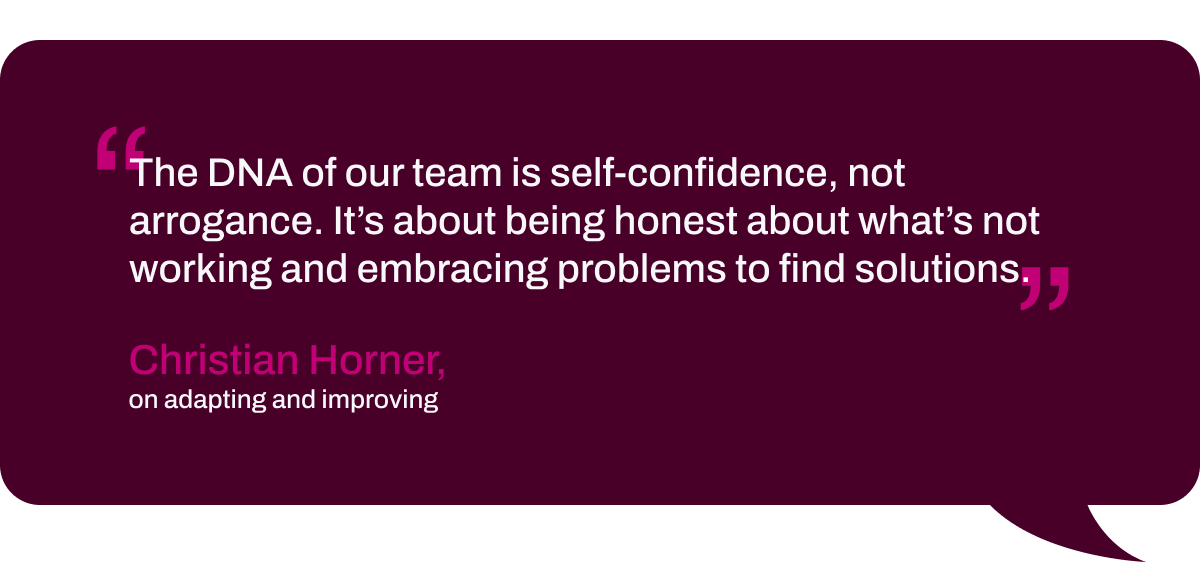
For Christian Horner, the partnership isn’t just about logos on a car—it’s about aligning on a vision and breaking new ground together. This shared commitment to resilience, adaptability, and progress has fueled initiatives that go beyond motorsport and ecommerce, including advancing gender diversity and inclusion.
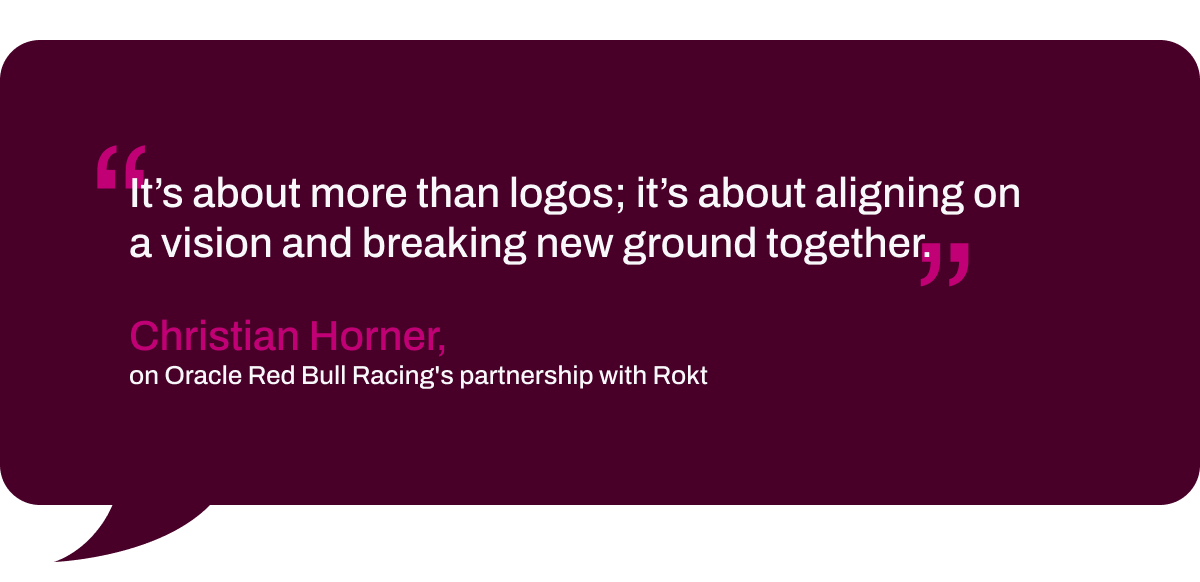
As a team partner, Rokt has proudly supported rising stars like Hamda Al Qubaisi, a member of the Red Bull Academy’s all-female racing team, who drives the Red Bull Racing Pepe Jeans car. Together, we’ve also launched programs like Rokt the Rig, designed to identify and nurture exceptional female talent in sim racing, and hosted the annual International Women in Engineering Day event, which connects women interested in STEM with leading engineers from technology and motorsport.
Learn more about our partnership with Oracle Red Bull Racing here.

